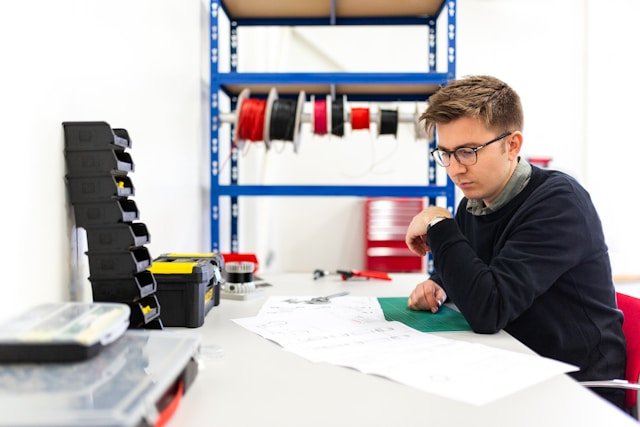Decoding the Interview Process: Key Questions for Aerospace Applicants
- Understanding the Aerospace Industry
- Technical Competence Questions
- Problem-solving Questions
- Behavioural Questions
- Exploring Team Dynamics
- Assessing Leadership Potential
- Future-focused Questions
The aerospace industry, a hotbed of innovation and discovery, has a unique interviewing process designed to identify top performers who can thrive amidst constant change. This article decodes this process and explores key questions to identify top aerospace applicants for your space business.
Understanding the Aerospace Industry
Firstly, to understand the interviewing process, we must appreciate the landscape of the aerospace industry. McKinsey & Company1 reports that this sector is characterised by rapid technological advances and a highly competitive environment. These conditions call for resilient, adaptable individuals who can keep pace with ongoing change.
Technical Competence Questions
On the technical front, the World Bank2 points to an increased demand for skills in areas like satellite technology, propulsion systems, and spacecraft design. Questions focusing on these areas help assess a candidate's technical competence. Beyond verifying a candidate's existing knowledge, it's crucial to assess their capacity to learn and adapt to new technologies.
Problem-solving Questions
Next up, problem-solving skills. Given the inherent complexity and unpredictability of space exploration, effective problem-solving is a valuable trait. Bain & Company3 research suggests that critical thinking and the ability to tackle complex problems are highly desired qualities in this industry. Questions that probe a candidate's approach to past challenges can provide insights into their problem-solving abilities.
Behavioural Questions
Then we have the behavioural aspect. Gartner4 points out that prioritising cultural fit during hiring can enhance employee engagement and retention. Behavioural questions can help assess a candidate's work style, collaborative and communication abilities, as well as their fit with your company's culture and values.
Exploring Team Dynamics
Aside from individual skills and attributes, the dynamics of the prospective team also play a crucial role in the selection process. According to Bain & Company5, successful teams in the aerospace sector often demonstrate complementary skills and a strong sense of camaraderie. Therefore, interview questions aimed at understanding a candidate's team dynamics and past experiences working in teams can be revealing. These might include questions about handling conflicts within a team or contributing to a team's collective goals.
Assessing Leadership Potential
The EY Future Work Now6 study underscores the importance of leadership traits, even in non-leadership roles. Employees who demonstrate leadership potential are often more engaged, innovative, and committed to their organisation. During the interview process, asking questions that explore a candidate's leadership potential can be beneficial. These can include queries about times they took the initiative, made difficult decisions, or motivated others.
Future-focused Questions
Finally, future-focused questions. It's important to understand a candidate's aspirations and long-term career plans. The World Economic Forum7 reports that aligning a company's vision with an individual's career goals can foster increased commitment and productivity. Understanding a candidate's ambitions can help you assess whether your organisation aligns with their growth aspirations.
In conclusion, a well-rounded interview process that covers technical competence, problem-solving abilities, behaviour, and future career plans can help identify promising aerospace applicants. This comprehensive approach can provide a competitive edge in attracting top talent.
External Links:
1. McKinsey & Company: "McKinsey Technology Trends Outlook 2023"
2. World Bank: "Investing in Human Capital to Accelerate the Green Transition"
3. Bain & Company: "Five key themes that will reshape the future of work"
4. Gartner: "Employees Seek Personal Value and Purpose at Work. Be Prepared to Deliver."
5. Bain & Company: "Aerospace and Defense: The Path to Growth in a Labor-Constrained World"
6. EY Future Work Now: "Transformative leadership as an answer to the future of work challenges"
7. World Economic Forum: "The Future of Jobs"









